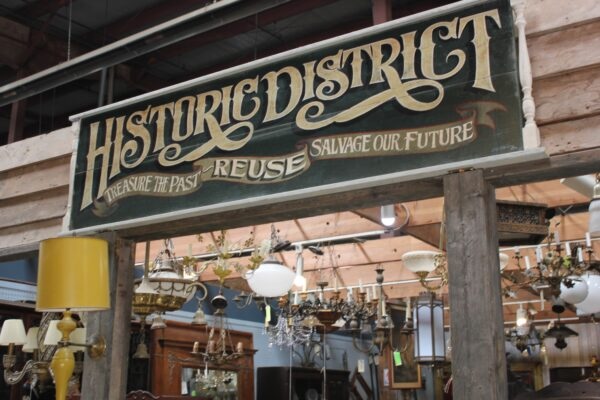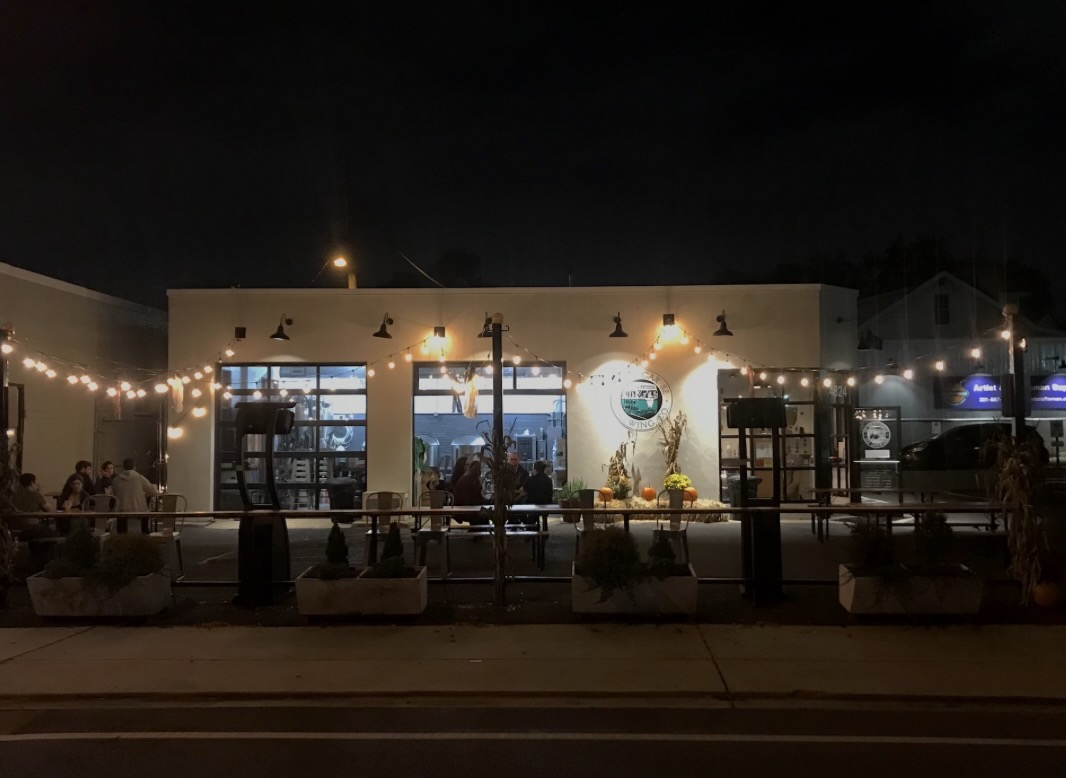Jennifer Mendenhall has had a long career in acting, but she recently stepped away from the stage to write her first play.
The Hyattsville actor and audiobook narrator was inspired by the story of her neighborhood pool’s desegregation to write “#poolparty,” currently in its final performances at Joe’s Movement Emporium in Mount Rainier, which she learned at a ceremony attended by the children of the man who fought for it.
“Listening to them, and thinking about how painful this was for them, and how many people are unaware of the history of discrimination that happens at swimming pools, made me want to create a theater piece that would convey all of this to an audience,” she told the Hyattsville Wire.
The play is part of the second season for Ally Theatre Co., a socially conscious theater group based in Kensington that puts on its plays at Joe’s and Caos on F in Washington.
The Hyattsville Wire caught up with Mendenhall recently to talk about the play and her experiences on and off stage.
How did you learn about the correspondence that formed the basis of the play?
#poolparty was inspired by a dedication ceremony I attended in 2015 at the private, neighborhood pool I belong to, at which the president apologized for the pool’s segregationist history, and specifically for refusing membership to the Bowlding family in the 1970s. He had discovered some letters which referred to a legal action on their behalf, in an old filing cabinet, and made the decision to acknowledge this history, and honor the man who ended the practice of segregation at the pool. The Bowlding’s father, Ray Sr, had reached out to counsels at the NAACP and the Department of Justice, who forced the pool board to change their membership requirements and stop excluding people of color. Mr Bowlding had passed away, but his children came to the dedication ceremony and spoke about their experiences.
Listening to them, and thinking about how painful this was for them, and how many people are unaware of the history of discrimination that happens at swimming pools, made me want to create a theater piece that would convey all of this to an audience. I asked the family for their permission to use their story as the basis for a larger exploration. I also had access to copies of the documents that were exchanged, over about a year and a half, between the organizations involved. There is a scene in the play that details Ray Sr. going to the NAACP, and the lengthy process of waiting, while the counsels exchange letters with the pool, until he finally prevails.
The family never joined the pool, as Ray Sr. was concerned for his children’s safety. It was a special honor for all of us at Ally Theatre, when the Bowlding family came to our opening night.
How did being an actor inform the way you wrote the play?
I’m a transformational, character actor. What I mean by that, is that I usually adopt mannerisms quite unlike my own, when I play a role. Some actors bring the character to them, and don’t change much from role to role. Others appear strikingly different in each role they play. I also believe in channeling, in being a conduit for the story that needs to be told. I like to disappear into the role.
I do the same thing with audiobooks, which is my other career, as narrator Kate Reading. My work on new plays with Woolly Mammoth and with the Kennedy Center has offered opportunities to play characters far outside my personal experience. I’ve also coached dialects, and directed.
So, for thirty years I’ve worked with language, character, and storytelling. For all these reasons, when the compulsion to share this story hit me, it felt very natural to step back and serve the characters that wanted to tell this story. But as confident as I may have felt in the language on the page, it took director Angelisa Gillyard, and the cast of actors, to embody and inhabit the characters, and bring them to life, which they do so specifically and beautifully.
Did writing a play affect how you now think about acting?
No. Though I do have a new appreciation for the work playwrights do to make sure that what they intend to communicate is there on the page. Those word choices and stage directions and character descriptions are sign posts for the director and actors and designers, and it’s easy to be misleading.
How long have you lived in Hyattsville? What made you move here?
My husband, Michael Kramer, and I moved here in 1997, when our son Henry was two. Our daughter Vivian was born at home in 2000: that caused quite some excitement on the street. Lots of kids tiptoeing into the bedroom to greet her. We needed a house with a dry basement where we could build a recording studio, and we wanted both privacy and a community. We’re a little extreme, I think. We can go weeks without seeing anyone, but we also throw huge parties and welcome everyone in, and love talking to our neighbors. There is a great mix of people here, each person with their own fascinating history. And red-shouldered hawks, deer, and foxes in our back yard.
What do you think of the local arts community? What would you like to see the area do more?
There is an extraordinary number of artists who live here, but that won’t continue unless the cost of housing is controlled and protected to enable them to afford it. If a community wants a vibrant arts scene, they need to provide affordable housing. All the new developments that are being built tout the presence of artists as an inducement for people to live here, so housing for them needs to be part of the plan, or they will be forced to move to an affordable community and start that whole process over again.
Likewise, for institutions like Ally Theatre, which really is a crown jewel — a true, small professional theatre, doing cutting edge work, committed to serving the community, where theatre artists can practice their craft as they hone their skills and move on to larger venues. The only other theatre like it in the county is Venus Theatre, run by Deborah Randall in Laurel.
Prince George’s County officials, Hyattsville/Mount Rainier/Brentwood/Port City officials, everyone who sees the benefit of having a professional theatre right here, should be falling over themselves to support Ty Hallmark, Tai Alexander and Valerie Fenton, who run Ally, with endorsements, advertising, subscriptions, gala events, and cold hard cash, to keep them in business at Joe’s.
And Joe’s Movement Emporium is an extraordinary place, one of the most valuable institutions we have, run with integrity, and heart. We are so blessed to have them here.
















